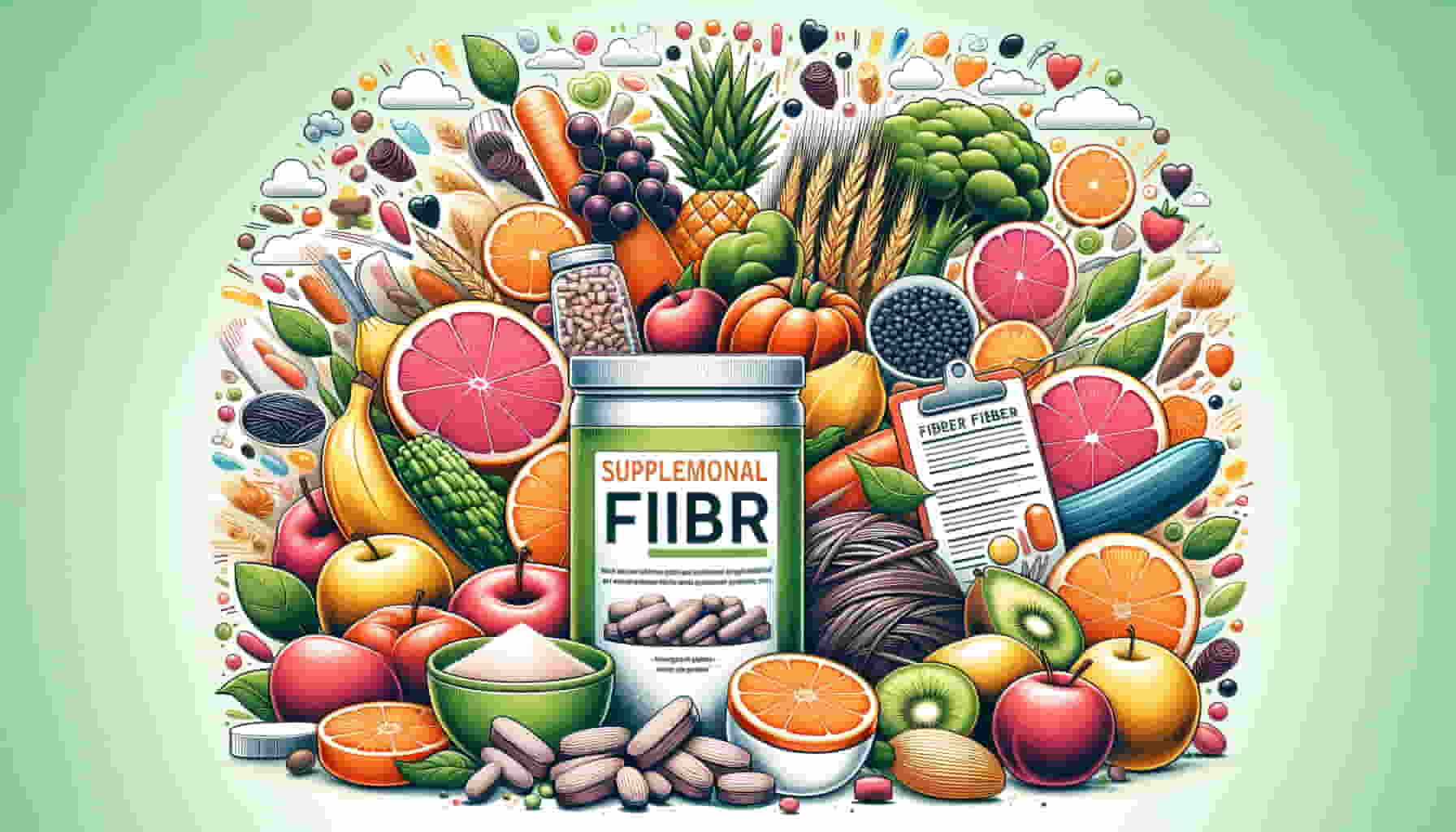The Fiber Fix: How Adding Supplements Can Boost Your Health

In the pursuit of better health, many individuals overlook the crucial role that fiber plays in maintaining overall well-being. While a balanced diet rich in fruits, vegetables, and whole grains is ideal, achieving the recommended daily intake of fiber can be challenging for some. This is where fiber supplements come into play, offering a convenient and effective way to bridge the gap. For those facing blood pressure issues, incorporating the best supplemental fiber into their diet may prove to be particularly beneficial.
Understanding Fiber and Its Importance
Fiber, found abundantly in plant-based foods, is a type of carbohydrate that the body cannot digest. Instead, it passes through the digestive system relatively intact, aiding in various essential functions. There are two main types of fiber: soluble and insoluble. Soluble fiber dissolves in water, forming a gel-like substance that helps to lower cholesterol levels and stabilize blood sugar levels. Insoluble fiber, on the other hand, adds bulk to the stool, promoting regular bowel movements and preventing constipation.
Both types of fiber play critical roles in supporting heart health, weight management, and overall digestion. However, despite its numerous benefits, studies suggest that many Americans fall short of meeting the recommended daily intake of fiber, which is around 25 grams for women and 38 grams for men.
The Benefits of Fiber Supplements
For individuals struggling to consume adequate amounts of fiber through their diet alone, supplements offer a convenient solution. Best supplemental fiber products are available in various forms, including powders, capsules, and chewable tablets, making it easier to incorporate into daily routines.
One of the primary benefits of fiber supplements is their ability to promote heart health. Soluble fiber, in particular, has been shown to help lower LDL (bad) cholesterol levels, thereby reducing the risk of heart disease. Additionally, fiber supplements can aid in managing blood sugar levels, making them a valuable tool for individuals with diabetes or those at risk of developing the condition.
Furthermore, fiber supplements can support weight management efforts by promoting feelings of fullness and reducing overall calorie intake. By bulking up the stool and promoting regular bowel movements, they also contribute to digestive health and alleviate issues such as constipation.
Choosing the Right Fiber Supplement
When selecting a fiber supplement, it’s essential to consider several factors to ensure its effectiveness and safety. Firstly, opt for products that contain natural sources of fiber, such as psyllium husk, oat fiber, or flaxseed. These ingredients provide a broader spectrum of nutrients and are generally well-tolerated by most individuals.
Additionally, pay attention to the fiber content per serving and aim for products that offer at least 5 grams of fiber per dose. Start with a low dose initially and gradually increase it as tolerated to minimize the risk of digestive discomfort such as bloating or gas.
Furthermore, it’s crucial to drink plenty of water when taking fiber supplements to prevent dehydration and aid in digestion. Without an adequate fluid intake, fiber can actually worsen constipation and gastrointestinal issues.
Incorporating Fiber Supplements into Your Routine
To maximize the benefits of fiber supplements, it’s essential to integrate them into a well-rounded approach to health and wellness. While supplements can help fill in the gaps, they should not be viewed as a substitute for a balanced diet rich in whole foods.
Start by incorporating fiber supplements into your daily routine gradually. Consider adding them to smoothies, oatmeal, or yogurt for a nutritious boost. Additionally, be mindful of your overall dietary habits and strive to increase your intake of fiber-rich foods such as fruits, vegetables, whole grains, and legumes.
Consulting with a Healthcare Professional
Before starting any new supplement regimen, especially if you have underlying health conditions or are taking medications, it’s crucial to consult with a healthcare professional. They can provide personalized guidance based on your individual needs and help determine the appropriate dosage and type of fiber supplement for you.
Furthermore, if you experience any adverse effects or unusual symptoms after starting a fiber supplement, discontinue use and consult with your healthcare provider promptly.
Conclusion
In conclusion, incorporating the best supplemental fiber into your daily routine can offer a myriad of health benefits, particularly for individuals facing blood pressure issues. From supporting heart health and blood sugar management to aiding in weight management and digestive health, fiber supplements play a crucial role in promoting overall well-being.
However, it’s essential to remember that fiber supplements should complement, not replace, a balanced diet rich in whole foods. By making conscious dietary choices and incorporating fiber supplements mindfully, you can take proactive steps towards optimizing your health and vitality. Remember to consult with a healthcare professional before making any significant changes to your supplement regimen, and listen to your body’s signals along the way. With the right approach, you can harness the power of fiber to support your journey towards a healthier, happier life.

Leave a Reply